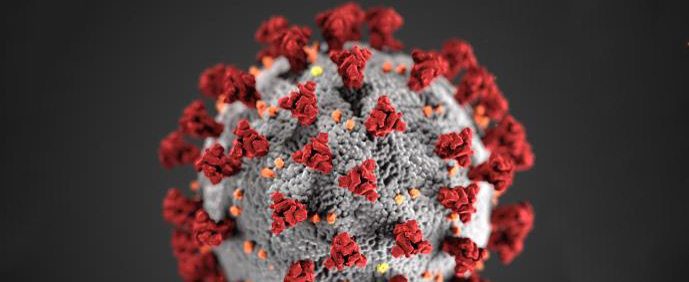Holistic Approaches to Protecting the Brain from Alzheimer’s Disease
Is Alzheimer’s Disease hardwired into the brain’s destiny as we age?
It’s a terrifying thought. Many people believe it’s true. Hope lies with the ongoing research to help us understand the root causes and progression of Alzheimer’s and the factors that may protect the brain from this devastating illness.
Alzheimer’s Disease (AD) is the most common form of dementia, affecting a person’s memory, thinking and behavior to the point where they don’t recognize themselves and their loved ones. Approximately 5.5 million people age 65 and older have Alzheimer’s Disease. Nearly 200,000 people under age 65 have early-onset AD. Symptoms start slowly and worsen over time, ultimately interfering with independent living and quality of life. Signs to look for include:
- Persistent forgetting of recently learned information and important dates or events
- Difficulty planning, problem solving, completing familiar tasks, and understanding time
- Difficulty processing visual images, object distance and contrast
- Trouble maintaining a conversation
- Social withdrawal and depression
- Changes in mood and personality, usually becoming anxious, suspicious, or confused
Scientists believe the disease process begins when protein deposits build up in brain tissue and damage nerve cells. This can evolve over 10-20 years before symptoms are noticed. While family history can increase your risk, many factors influence the onset and progression of AD. Maintaining a healthy lifestyle, as outlined below, can help alter your brain’s destiny.
The Brain-Body Health Connection. Several illnesses are linked to an increased risk for AD, including heart disease, stroke, high blood pressure, and diabetes. To protect your mind from cognitive decline, exercise daily, eat more whole foods, learn new skills, meditate, read regularly, and get quality sleep each night.
Smart Food for Healthy Aging. Choosing fresh, nutrient rich foods is vital for brain health (and the body, too!). Select organic foods to decrease exposure to toxins that exist in conventional farming. Limit your intake of caffeine, sugar, alcohol, refined grains, and packaged foods to ensure optimal health benefits from your food.
Manage Stress. Stress elevates hormones in the body that increase inflammation which, over time, interferes with optimal functioning and contributes to illness. Relax with yoga, mindful walking, or guided imagery to help keep these hormones in balance.
Get Your ZZs. We need just as much sleep in our elder years as in our 30s and 40s. What does change is the brain’s ability to maintain continuity and quality of sleep, particularly deep sleep. Maintaining healthy sleep habits throughout your adult life can make it easier to maintain sleep quality as you age.
A Personalized Approach, Naturally. Prevention is important, but once signs of cognitive decline are noticed, you need expert guidance. Though more long-term studies are needed, initial research shows that a personalized approach incorporating natural medicines plus lifestyle change can reverse cognitive decline for some people. For expert guidance in developing a personalized prevention or early intervention program, consult with Dr Fenske.
[hr]
What’s New
Nearly twice as many women have Alzheimer’s Disease as men, according to the U.S. Department of Health and Human Services. Alzheimer’s Disease also worsens more quickly in women than it does in men.
[hr]
Hemp Seeds Nourish Brain Health
Although hemp seed comes from the same species of plant as marijuana, it does not contain psychoactive chemicals and it stands on its own regarding health benefits. Hemp is considered “brain-friendly” because it’s rich in nutrients, especially omega-6 and omega-3 essential fatty acids – a group of fats the body doesn’t make on its own. A healthy ratio of these fatty acids (EFAs) is generally 2:1. Eating hemp seeds provides that balance, which is important for Westerners whose diets typically include more omega-6 fats. These EFAs, plus antioxidants found in hemp, help reduce inflammation, which plays a crucial role in overall health particularly for the heart and the brain.
The protein in hemp is another stand-out nutrient. Hemp seeds are one of the few plant sources that contain all the essential amino acids the body cannot manufacture on its own and yet are necessary for many bodily functions. Both fat and protein are critical for brain development from conception through birth and beyond. As we age, we need these nutrients to feed the protective layers around nerve tissue. Researchers are actively examining the benefits of hemp seed for brain health and in relation to conditions such as Alzheimer’s and Parkinson’s Disease.
The light, nutty flavor of hemp seeds makes them an easy addition to anyone’s diet. Enjoy them raw; blend to make hemp milk; mix into yogurt, salads, smoothies, and desserts; or add to soups and other recipes.
Hemp seeds are best bought shelled/hulled and are usually labeled as “hemp seed hearts.” Store in the fridge or freezer for the longest preservation of flavor and nutrient content. You can also store hemp in a dry, cool area away from heat sources for up to one year.
[hr]
Protecting Brain Health with Essential Fatty Acids (EFAs)
The omega-3 fatty acids, eicosapentaenoic acid (EPA) and docosahexaenoic acid (DHA) are classified as “essential” nutrients for the human because they cannot be made by the body. Hence the term, Essential Fatty Acids (EFAs). Since the body cannot make EFAs, we have to acquire what we need from food and nutritional supplements. While EFAs are important to overall health, in this article we highlight their importance to brain health. Fatty acids nourish and protect brain cells and help reduce inflammation. Scientists are actively investigating the role EFAs play in preventing and managing age-related cognitive decline.
When we consume EFAs, the body will use what it needs and then stores the rest for future use. Brain tissue is especially rich in EFAs where it is important for protecting connections between nerve cells. So, a diet deficient in these fats deprives the brain and nervous system of a crucial nutritional substance. Scientists believe DHA protects against Alzheimer’s Disease (AD) and dementia. Adults with insufficient intake of DHA show poor performance on cognitive tests as well as increased risk for age-related cognitive decline. In studies using an EFA supplement, there have been positive changes in memory related functions for individuals with very mild AD.
Because we must get EFAs from food or nutritional supplements, it’s important to understand what our bodies need. Most Americans get a daily average of only 130 mg EPA + DHA – far below the 1000-2000 mg recommended for optimal health and cognitive function. We also need the proper ratio of omega-3 to omega-6 fatty acid. Too little omega-3 and too much omega-6 can result in increased inflammation. Eating a variety of EFA rich foods plus a supplement is a good option for many people.
People who have a high intake of fish consumption show a decreased risk for dementia and AD. Foods abundant in EFAs include salmon, chunk light tuna, halibut, sardines, and krill, as well as flaxseed, chia seeds, and walnuts. Be mindful of the source of your fish, since some are high in mercury. Look for wild caught options. Dr Fenske can help you with dietary options and EFA supplements that best meet your needs.
[hr]
Guiding Principles




